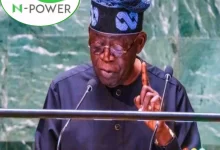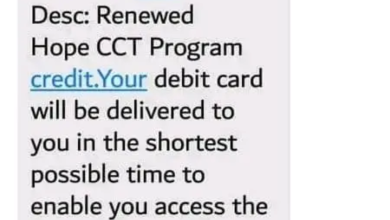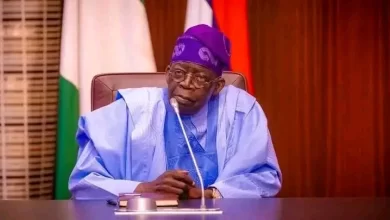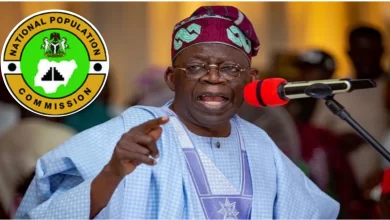Latest News today 31st January 2024: About N200,000 New minimum wage
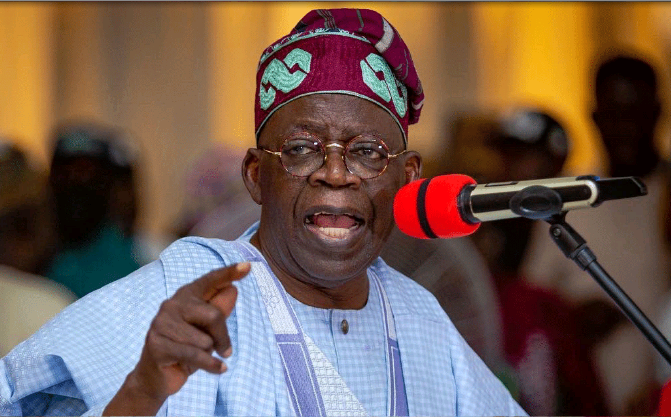
Latest News today 31st January 2024: About N200,000 New minimum wage
New Minimum Wage: The Nigerian Labour Congress declared on Tuesday that, in light of the nation’s current economic circumstances, the N200,000 New minimum wage it had previously suggested to the Federal Government was no longer feasible.
The congress was responding to Vice President Kashim Shettima’s inauguration of the Minimum Wage Committee on Tuesday, and it did so through its National Vice President, Tommy Etim.
Etim emphasized that the congress would base its national minimum wage discussion on the present economic reality rather than what it had previously advocated in an exclusive interview with The PUNCH on Tuesday.
He stated, “You understand that the socioeconomic obstacles were not as severe as they are now when we decided to use the N200,000. Furthermore, the exchange rate was different from what it is today. The current value of the naira has not been devalued. N200,000 is therefore no longer reasonable.
We are not going there with a predetermined sum, but we are not going to bring N200,000, Etim responded when our correspondent inquired about the minimal amount the congress would bring to the committee. We shall make a decision based on the socioeconomic circumstances when we arrive. That is the foundation upon which we will discuss and negotiate the national minimum wage.
The 37-member wage committee was previously given instructions by the Federal Government to expedite its discussions and provide its recommendations as soon as possible. It was also asked to ensure that the Ministry of Finance provided sufficient funding for the committee and advocated for good-faith collective bargaining, stressing contract adherence while also encouraging committee members to seek outside advice.
You May Also Click To Check 👉Latest News On Health Workers Recruitiment In Nigeria 2024

The panel’s mandate is to propose a new national minimum wage for the nation, with members drawn from the private sector, organized labor, and federal and state governments.
President Bola Tinubu instructed the committee members to ensure timely completion of their jobs and stated that to maintain sustainability in all tiers of government, the committee must consider each party’s ability to pay the new wage.
When he launched the tripartite committee on the national minimum wage in the Council Chamber of the State House in Abuja, Tinubu—represented by the Vice President—said as much. It is expected that the committee would expeditiously wrap up its discussions and turn in its report and recommendations.”This timely submission must be made to start the procedures required to establish a new national minimum wage.
The Committee has been directed to provide the necessary finances and logistics by the Honorable Minister of Finance and Coordinating Minister of the Economy to enable the Committee to fulfill its assigned work on time. The President said, “I hereby formally establish the Tripartite Committee on National Minimum Wage and offer my warmest wishes for productive discussions.”
Read Also 👉Call For Application: Link and How To Apply For NAF DSSC 2024 32 Recruitment Free
The new national minimum wage committee’s inauguration on Tuesday comes after months of agitation from organized labor, which was upset that the FG had not established the committee as agreed in October of last year during negotiations.
The National Minimum Wage Act was amended by the House of Representatives in May 2017 to require a five-year review of workers’ compensation.
As a result, the committee is given the authority to discuss and recommend pay that would be approved by the National Assembly following appropriate legal review, thanks to the Minimum Pay Act 2019, which was signed by former President Muhammadu Buhari.
In the same year, Buhari also approved N30,000 for federal and state workers through the Minimum Wage Act. But on May 29, 2023, Tinubu said that gasoline subsidies would no longer be provided. This led to a significant increase in the overall cost of living.
To lessen the effects of the elimination of the subsidies, the administration granted an additional N35,000 pay award for six months (beginning September 2023) but organized labor insisted that this was merely a temporary fix and demanded a thorough review of the minimum wage in 2024.

The President stated that taking into account the sustainable payment capacity of all levels of government as well as other employers or businesses, his administration aims to transcend the fundamental Social Protection Floor for all Nigerian workers.
“I express this viewpoint because I believe that the minimum wage should be rooted in social justice and equity, as it represents the least amount of compensation an employee should receive for their labor,” he said in his justification.
The President addressed the group, saying, “I hope that the results of your deliberations will be consensual and acceptable to all parties involved.”
Reiterating that “the labor force stands as the cornerstone of the progress of every nation, and ours has been the enduring engine of our pursuit of development,” he expressed his administration’s commitment to enhancing the welfare of Nigerian workers and, consequently, the nation as a whole.
The Secretary to the Government of the Federation, George Akume, exhorted the committee to give it its all earlier in his opening remarks, pointing out that the task at hand held the dreams and aspirations of millions of Nigerian workers.
According to Akume, the newly formed group has carried out the Tinubu administration’s pledge to start a thorough examination of the minimum wage for the typical Nigerian worker.
The President was reassured by Bukar Aji, the tripartite committee’s chairman, that the committee would fulfill its given duties with diligence.
Aji, a former Federation Head of Service, stated, “With God’s grace, we shall carry out extensive consultations with key stakeholders to arrive at a new minimum wage that is fair, practical, and implementable.”
In the meantime, Niger State Governor Mohammed Bago, a member of the pay committee, said reporters that he did not anticipate any difficulties during the group’s next two months of work.
“It’s important to note that while we don’t want to predict the outcome of this meeting, the sub-nationals face their own set of challenges. The Federal Government, in its wisdom, has put these challenges into perspective, and since we will be conducting this discussion in conjunction with them, I doubt we will encounter any obstacles,” he said.

According to Humphrey Ngonadi, the Vice President of the Nigerian Association of Chambers of Commerce, Industry, Mines, and Agriculture, increasing the minimum wage won’t have any effect if the cost of necessities continues to rise.
“I’m still concerned, but I thank God for the government’s initiative in this specific location. We may recall the Udoji Award from a long time ago. It was the first time that worker pay was raised, and the commodities market instantly rose to keep up with the increase. Therefore, let the government focus on lowering market prices for commodities while we raise worker salaries.
“A worker receiving the minimum pay of N1 million does not mean anything if a bag of rice costs N900,000. Therefore, Ngonadi contended, “I believe that in considering raising the minimum wage and increasing worker salaries, the government must consider how that money will have value.
Six governors, a few cabinet ministers, representatives from organized labor, and business leaders make up the 37-member tripartite committee.
The North Central governor is Bago from Niger State; the North East governor is Bala Mohammed from Bauchi State; the North West governor is Dikko Radda from Katsina State; the South East governor is Charles Soludo from Anambra State; the South West governor is Ademola Adeleke from Osun State; and the South-South governor is Otu Bassey from Cross River State.
The ministers are Wale Edun, the Minister of Finance and Coordinating Minister of the Economy; Atiku Bagudu, the Minister of Budget and Economic Planning; Dr. (Mrs.) Yemi Esan, the Head of the Federation’s Civil Service; and Nkeiruka Onyejeocha, the Minister of State for Labor and Employment.


